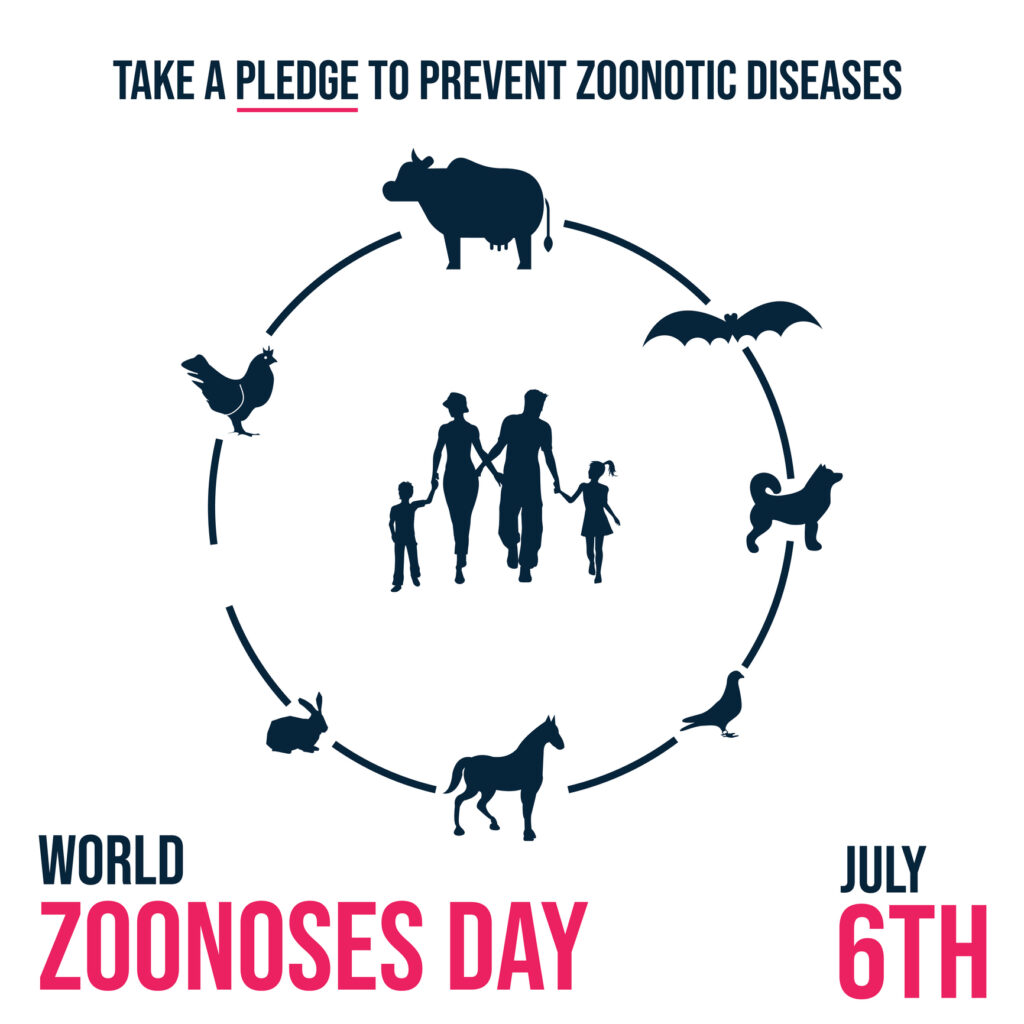Zoonotic diseases are illnesses that can be transmitted from animals to humans. These diseases can be caused by bacteria, viruses, parasites, and fungi. Understanding and preventing zoonotic diseases is crucial for the health and well-being of both humans and animals. Here’s what you need to know about zoonotic diseases and how to protect yourself and your pets.

What Are Zoonotic Diseases?
Zoonotic diseases, also known as zoonoses, are infections that spread from animals to humans. These diseases can be transmitted in various ways, including direct contact with animals, through contaminated food or water, or by vectors like mosquitoes and ticks. Some common zoonotic diseases include rabies, Lyme disease, salmonellosis, and toxoplasmosis.
Common Zoonotic Diseases
- Rabies:
- Cause: Rabies is caused by a virus that affects the nervous system.
- Transmission: It is typically transmitted through the bite of an infected animal.
- Prevention: Vaccination of pets and avoiding contact with wild animals are key prevention methods.
- Lyme Disease:
- Cause: Lyme disease is caused by the bacterium Borrelia burgdorferi.
- Transmission: It is spread through the bite of infected black-legged ticks.
- Prevention: Using tick prevention products on pets, wearing protective clothing, and performing tick checks after outdoor activities can help prevent Lyme disease.
- Salmonellosis:
- Cause: Salmonellosis is caused by Salmonella bacteria.
- Transmission: It can be contracted through contact with infected animals or contaminated food and water.
- Prevention: Proper food handling, good hygiene, and regular veterinary care for pets are important preventive measures.
- Toxoplasmosis:
- Cause: Toxoplasmosis is caused by the parasite Toxoplasma gondii.
- Transmission: It can be transmitted through contact with cat feces or contaminated soil, water, or food.
- Prevention: Pregnant women should avoid handling cat litter, and everyone should practice good hygiene and cook food thoroughly.
Prevention and Control
Preventing zoonotic diseases involves a combination of good hygiene, regular veterinary care, and public awareness. Here are some key strategies:
1. Regular Veterinary Care:
- Ensure your pets receive regular check-ups and vaccinations. This helps prevent diseases like rabies and keeps your pets healthy.
2. Good Hygiene Practices:
- Wash your hands thoroughly after handling animals, cleaning litter boxes, or working in the garden.
- Avoid close contact with animals that are sick or unknown to you.
3. Safe Food Handling:
- Cook meat thoroughly and avoid consuming raw or undercooked animal products.
- Wash fruits and vegetables before eating.
4. Protect Against Vectors:
- Use tick and flea prevention products on your pets.
- Wear protective clothing and use insect repellent when spending time outdoors.
5. Educate Yourself and Others:
- Stay informed about zoonotic diseases and their prevention.
- Educate your family and community about the importance of preventing zoonotic diseases.
Veterinarians play a crucial role in controlling zoonotic diseases. They provide essential services such as vaccinations, parasite control, and educating pet owners about disease prevention. By maintaining a strong partnership with your veterinarian, you can help protect the health of both your pets and your family.
Zoonotic diseases are a significant public health concern, but with proper knowledge and precautions, they can be effectively managed and prevented. By practicing good hygiene, ensuring regular veterinary care for your pets, and staying informed, you can reduce the risk of zoonotic diseases and promote a healthier environment for everyone.
For more information on other helpful resources, visit the Indiana Veterinary Medical Association’s Pet Owner Resources. Together, we can work towards a safer and healthier community for both humans and animals.